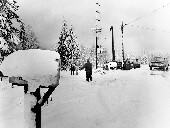December 9, 2014


Latest Prevention & Wellness News
SUNDAY, Dec. 7, 2014 (HealthDay News) — The arrival of cold weather means many people are using space heaters to help keep their homes warm. The devices are safe when used properly, but misuse can result in burns and fires.
Each year, space heaters cause more than 25,000 residential fires and more than 300 deaths, the U.S. Consumer Product Safety Commission reports. Also, more than 6,000 Americans a year receive emergency room care for space heater-related burns.
“Bitter cold, ice and snow are here for many parts of the East and Midwest, bringing with it burn injuries caused by improper use of heating devices,” Dr. Michael Mosier, a burn surgeon at Loyola University Medical Center in Maywood, Ill., said in a Loyola release.
“If proper precautions are taken, space heaters can be used safely; but so often they aren’t and house fires ignite,” he said. “Whole families are seriously injured, often for life.”
Space heaters should be kept at least 3 feet away from furniture or other combustible items, such as curtains and bedding. Don’t place heaters on carpets or rugs. Put them on a hard, level surface where a child or pet can’t brush up against them. Never leave a space heater on when an adult is not present in the room, and never keep flammable liquids near a space heater.
Only vented fuel-fired heaters or electric heaters should be used in mobile homes.
Electric space heaters are the safest for use in any home. They should be plugged directly into a wall outlet. If an extension cord is needed, use a heavy-duty cord of 14-gauge wire or larger. The heater should have a tip-over safety switch that turns off the heating element if the heater falls over.
Never use unvented combustion heaters in your home. They are for outdoor use only.
If you use a vented indoor combustion heater, follow the maker’s recommendations for fueling and use only the approved fuel. Have it professionally inspected each year. Never fill a heater while it’s hot. Don’t overfill it — allow room for fuel expansion. Store fuel outdoors.
Be sure there is a guard around the heating element or flame area. Never leave a fuel-fired heater on when you go to sleep.
— Robert Preidt
 Copyright © 2014 HealthDay. All rights reserved.
Copyright © 2014 HealthDay. All rights reserved.
SOURCE: Loyola University, news release, Nov. 19, 2014
![]()